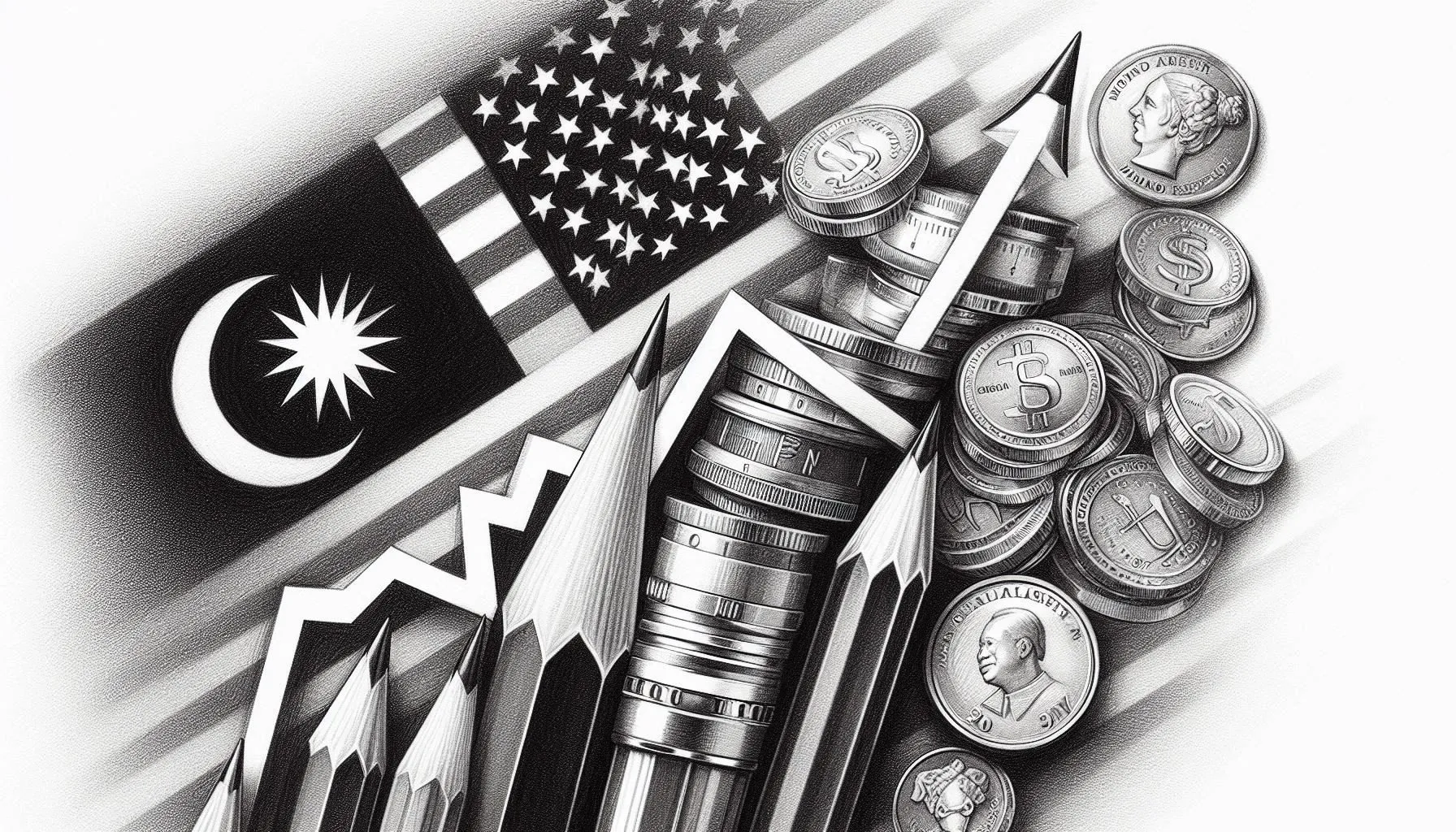Understanding Inflation: Its Impact on Your Savings and Investments

Don't let inflation blow you over; instead, make it work for you
Inflation is a term that often makes headlines, especially when the cost of goods and services starts rising faster than usual. But what exactly is inflation, and how does it impact your savings and investments? To better understand this crucial concept, we will explore how inflation affects individuals in both the United States and Malaysia, while also examining the roles of government and central banks in managing inflation.
What is Inflation?
Inflation refers to the general increase in the price of goods and services over time, leading to a decrease in the purchasing power of money. In simpler terms, inflation means that the same amount of money buys you fewer items than it did in the past. For instance, if inflation is 3%, something that cost RM100 or $100 last year will cost RM103 or $103 this year.
While a moderate level of inflation is normal and can indicate a healthy economy, high inflation erodes your savings and reduces the real value of your investments if they aren’t growing at a faster pace.
Inflation’s Impact on Your Savings
Inflation can be especially detrimental to your savings. When you deposit money in a savings account, the interest rate is often lower than the inflation rate. As a result, your money grows at a slower pace, and its real value decreases over time.
Example – United States
In the U.S., due to war that led to an energy crisis, inflation rose significantly in 2022, peaking at 9.1% in June—the highest in 40 years. Meanwhile, savings accounts offered interest rates of around 0.5% to 1.0%. This disparity meant that individuals with savings in low-interest accounts were effectively losing purchasing power, as their money couldn't keep up with the rising cost of living.
Example – Malaysia
Malaysia experienced lower inflation rates, but in 2022, the inflation rate reached 4.7%, driven by higher food and energy prices. With many savings accounts offering interest rates below this figure, savers in Malaysia similarly saw the real value of their savings diminish over time.
Inflation’s Impact on Investments
While inflation can erode savings, its effect on investments is more nuanced. Inflation can either help or hurt your portfolio, depending on how your assets are structured.
- Stocks: In periods of inflation, companies may pass on higher costs to consumers, leading to increased revenues and higher stock prices. However, if inflation spirals out of control and leads to higher borrowing costs, corporate profits can suffer, negatively impacting stock performance.
- Bonds: Inflation generally harms bonds, especially fixed-rate bonds. When inflation rises, the fixed interest payments you receive from bonds lose value in real terms. This is why bond prices often fall when inflation increases.
- Real Estate: Real estate is often seen as a hedge against inflation, as property values and rental income tend to rise along with the overall price level.
Example – United States
During the high inflation period in the U.S. in 2022, tech stocks, which are sensitive to rising interest rates, saw a significant downturn, while energy companies saw a boom as oil prices surged. Meanwhile, U.S. government bonds, particularly long-term bonds, experienced a loss in value as inflation rose, reducing the real returns for bondholders.
Example – Malaysia
In Malaysia, inflation has driven up real estate prices, making property investments attractive for some investors. However, rising inflation and interest rates could make borrowing more expensive, potentially slowing down property market growth in the future. Malaysian bond investors also experienced lower real returns during periods of higher inflation.
The Role of Governments and Central Banks
Governments and central banks play a critical role in managing inflation through fiscal and monetary policies. Their involvement often includes adjusting interest rates, controlling money supply, and enacting policies to stabilize the economy.
United States
In response to rising inflation in 2022, the U.S. Federal Reserve took aggressive steps to curb inflation by raising interest rates multiple times. By increasing the cost of borrowing, the Federal Reserve aims to reduce consumer spending and business investment, which can lower demand and bring inflation under control. However, higher interest rates can also slow economic growth and increase the risk of a recession.
Malaysia
Bank Negara Malaysia (BNM), Malaysia’s central bank, has also responded to inflationary pressures by adjusting its overnight policy rate (OPR). In 2022, BNM increased the OPR multiple times to control inflation. By raising the OPR, BNM made borrowing more expensive, thus cooling down demand and helping to control price increases. Additionally, the Malaysian government introduced subsidies and price controls to ease the burden of inflation on households.
Protecting Your Wealth from Inflation
To protect your wealth from the adverse effects of inflation, consider the following strategies:
1. Invest in Inflation-Hedged Assets
Diversify your portfolio to include assets that tend to perform well during inflation, such as real estate, commodities, or Treasury Inflation-Protected Securities (TIPS) in the U.S. context.
2. Review Fixed-Income Investments
Consider shifting some of your fixed-income investments from long-term bonds to short-term bonds or inflation-linked securities to mitigate the negative impact of inflation on bond returns.
3. Invest in Stocks with Pricing Power
Companies that can easily pass higher costs onto consumers, such as those in the energy or consumer goods sectors, tend to fare better during inflationary periods. Certain unit trust funds focus on sectorial stocks like these.
4. Monitor Central Bank Policies
Keep an eye on central bank actions, such as interest rate hikes, which can affect both the economy and your investments. Adjust your strategy accordingly to remain aligned with economic conditions.
Conclusion
Inflation is an inevitable part of economic life, and its impact on your savings and investments can be significant. While inflation can erode the value of your savings, the right investment strategy can help you stay ahead. By understanding the role of governments and central banks in managing inflation, and by diversifying your investment portfolio, you can protect your wealth and continue growing it, even in inflationary environments.
Staying informed and proactive is the key to navigating inflation successfully, no matter where you are—whether in the U.S., Malaysia, or anywhere else.
